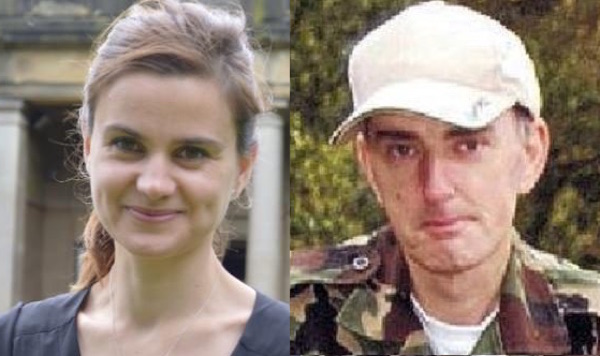
The British political system has lurched into crisis following the murder of a progressive MP and embittered exchanges ahead of this weeks’s referendum on EU membership. Campaigning in the referendum, which could have profound significance for Ireland and Scotland, has been suspended.
Amid conflicting reports, West Yorkshire MP Jo Cox appears to have been assaulted, stabbed and then shot. The attacker, who ambushed the 41-year-old outside a West Yorkshire library, may have been shouting the name of an extreme right political organisation, ‘Britain First’.
Ms Cox had earned a reputation as a pro-integration voice following her election last year for the Labour Party. In her maiden speech last June, she spoke of how immigration had enriched community life. “Our communities have been deeply enhanced by immigration, be it of Irish Catholics across the constituency or of Muslims from Gujarat in India or from Pakistan, principally from Kashmir,” she said.
Her murder has ignited a wave of condemnation and speculation. Cox was killed by a “well of hatred”, Labour leader Jeremy Corbyn said in an emotional tribute to the victim in her constituency. Appearing alongside Tory leader David Cameron, Corbyn also announced that parliament would be recalled on Monday to pay tribute “on behalf of everybody who values democracy, free speech and the right of political expression”.
News media described the murder suspect Tommy Mair (pictured, right) as a deranged loner with links to racist and neo-fascist organisations. This was contradicted by neighbours who described him a community-minded figure who helped Asian people with their English language skills and never spoke about politics or race.
However, asked at Westminster magistrates court on Saturday to confirm his name, Mair said: “My name is death to traitors, freedom for Britain.”
‘Britain First’ supporters denied Mair was involved with the organisation, and even suggested the attack had been a ‘false flag’ plot to damage. But for the British establishment, the murder came as a harsh introduction to right-wing extremism.
“Something close to a chilling culture war is breaking out in Britain, a divide deeper than I have ever known, as I listen to the anger aroused by this referendum campaign. The air is corrosive, it has been rendered so. One can register shock at what has happened, but not complete surprise,” wrote commentator Polly Toynbee in the Guardian.
A colleague of the deceased MP also suggested the referendum campaign had provoked the killing. Neil Coyle, a fellow Labour MP, said ‘Leave’ campaigners were putting out ‘very dangerous’ material which ‘risks inspiring the hard right’ .
He particularly criticised a new poster by the UK Independence Party which uses a picture of Syrian refugees being escorted during the migrant crisis last October and tells voters: ‘The EU has failed us all. We must break free of the EU and take control of our borders.’
Earlier, former prime minister John Major accused fellow Conservatives Boris Johnson and Michael Gove of running a “squalid” campaign as they aligned with the hard right UK Independence Party. UKIP leader Nigel Farage was himself accused of “dog-whistle politics” after he suggested that Britain could see mass sex attacks similar to those blamed on immigrants in Cologne on New Year’s Eve.
Opposition to the EU has produced unusual coalitions on both sides, and this is reflected in Ireland, where socialists, some republicans and the DUP have advocated a ‘Leave’ vote, while Sinn Fein is aligned with the Ulster Unionist Party in supporting ‘Remain’.
The 26 County Taoiseach Enda Kenny was forced to abandon his own efforts in support of the ‘Remain’ campaign due to the moratorium in the aftermath of Cox’s death. A joint press conference with the British PM had already been cancelled after Cameron’s advisers, apparently panicked by rising support for ‘Leave’, urged him to lower his profile.
But among his latest remarks, the British prime minister suggested new checks could be introduced at ports and airports in the North of Ireland in the event of Britain’s exit from the EU.
Speaking from Westminster, he said: “You can only have new border controls between the Republic and Northern Ireland or, which I would regret hugely, you would have to have some sort of checks on people as they left Belfast or other parts of Northern Ireland to come to the rest of the United Kingdom.”
There have also been warnings over the potential for damage to the peace process. The 1998 Good Friday Agreement states that there should be no change to the political status of the Six Counties without the consent of a majority here, so a vote to ‘Leave’, against the will of a majority in the Six Counties, could be seen as a repudiation of that agreement. This was theatrically underlined by US diplomat Richard Haass who warned that a Brexit could trigger “political gridlock, violence, or calls for partition” -- understood to mean repartition.
In an interview this week, Gerry Adams said he supported Britain’s continued membership of the EU. “It’s not in Ireland’s interest, whatever we think about the European Union, to have one part in and one part out,” he said.
He believed the British state would not leave the border open: “The frontier of the EU would be a few miles up the road from here.”
He stressed that his party still wanted to see the border removed entirely: “If you talk about a Brexit, Sinn Féin still wants a Brexit from Ireland. We want to see a border poll anyway. If there’s a Brexit, then there’s a democratic imperative to have a border poll.”
* Results from the Thursday’s referendum will be published here as they become available.
![[Irish Republican News]](https://republican-news.org/graphics/title_gifs/rn.gif)
![[Irish Republican News]](https://republican-news.org/graphics/title_gifs/harp.gif)

